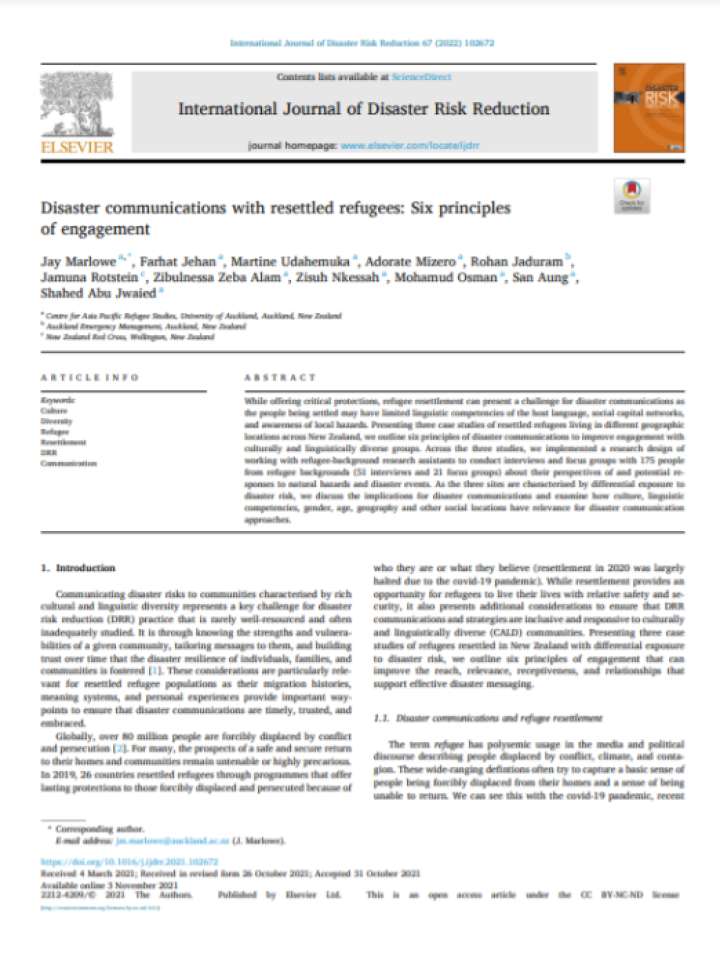Disaster communications with resettled refugees: Six principles of engagement
This paper explores the challenges of refugee resettlement by presenting three case studies of resettled refugees living in different geographic locations across New Zealand and outlines six principles of disaster communications to improve engagement with culturally and linguistically diverse groups. Refugee resettlement can present a challenge for disaster communications as the people being settled may have limited linguistic competencies of the host language, social capital networks, and awareness of local hazards. Across the three studies, we implemented a research design of working with refugee-background research assistants to conduct interviews and focus groups with 175 people from refugee backgrounds (51 interviews and 21 focus groups) about their perspectives of and potential responses to natural hazards and disaster events.
The paper finds that the three case studies highlight that refugee-background groups have more in common with one another relative to disaster communications than differences. However, important differences across all three case studies of a current disaster, higher risk, and lower risk hazard contexts were noted. Most importantly, the studies signal the importance of building relationships with communities well before a disaster occurs. The intersectional identification of participants was important across the three case studies related to gender, age, religion, community size, and English language competencies. These considerations were generally consistent across the case studies and highlight the need to tailor disaster communications beyond the generic identifier of the refugee label.
Explore further
